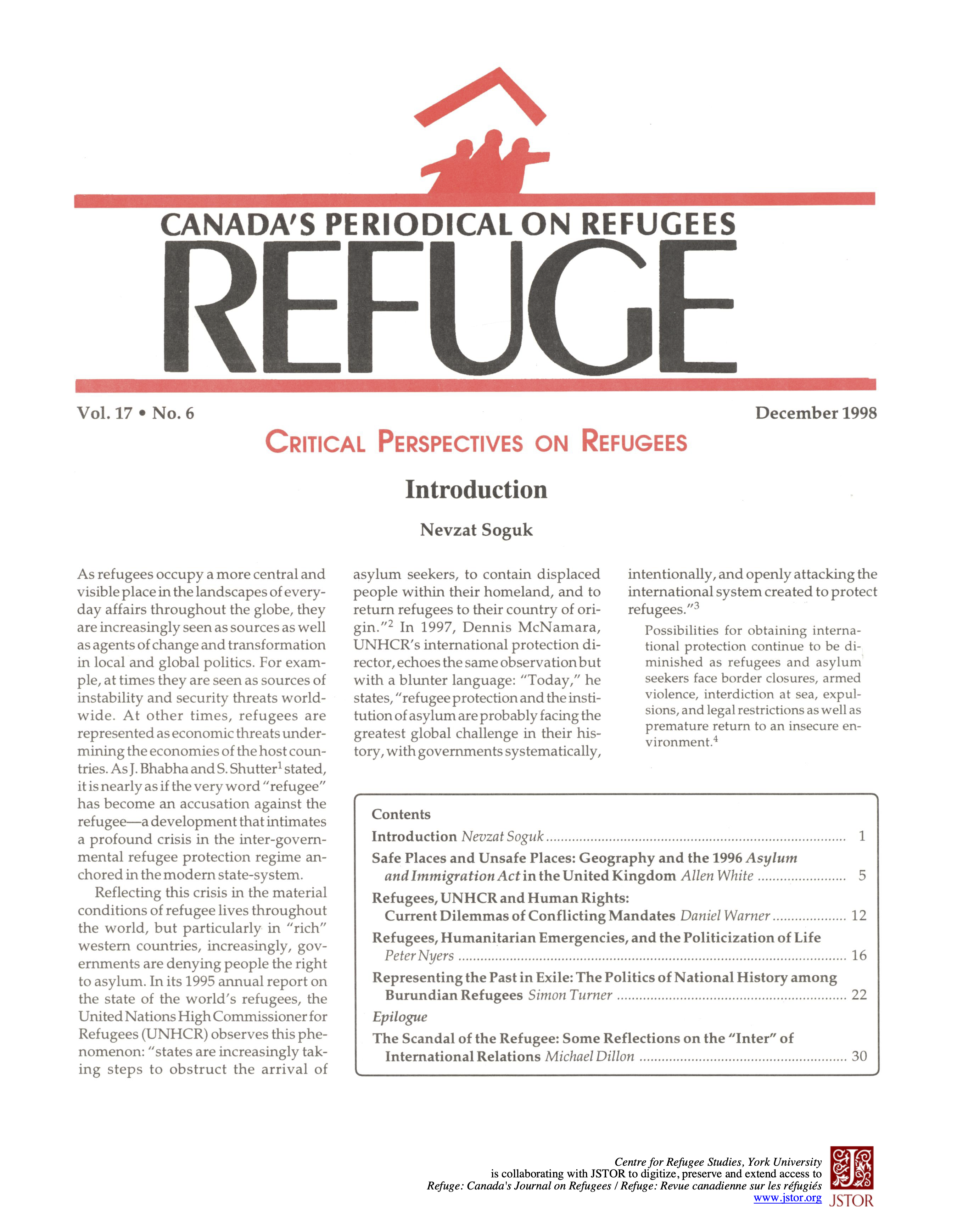Epilogue: The Scandal of the Refugee: Some Reflections on the "Inter" of International Relations
DOI:
https://doi.org/10.25071/1920-7336.21998Keywords:
refugees, forced migration, philosophy, politics, international relations, ontology, identityAbstract
The refugee is a scandal for philosophy in that the refugee recalls the radical instability of meaning and the incalculability of the human. The refugee is a scandal for politics also, however, in that the advent of the refugee is always a reproach to the formation of the political order subjectivity which necessarily gives rise to the refugee. The scandal is intensified for any politics of identity which presupposes that the goal of politics is the realization of sovereign identity. The principal argument, then, is that what I will call the scandal of the refugee illuminates both the fundamental ontological determinations of international politics and the character of political action, because the refugee is both a function of the intentional political destruction of the ontological horizons of people's always already heterogeneous worlds, and effects an equally fundamental deconstruction of the ontological horizons which constitute the equally heterogeneous worlds into which, as refugees, these people are precipitated. It is precisely on this concrete and corporeal site that both the ontological horizons and the allied political decision-making of modern politics are thrown into stark relief and profoundly called into question. For it is precisely here that the very actions of modern politics both create and address the incidence of its own massive and self-generated, political abjection. If that is one of the principal ends of international relations, one is forced to ask, what does it take as its beginning? If, in other words, the vernacular political architecture of modern international power commonly produces forcibly displaced people globally, one is inclined to ask about the foundations upon which that architecture is itself based.
Metrics
Downloads
Published
How to Cite
Issue
Section
License
Copyright (c) 1998 Michael Dillon

This work is licensed under a Creative Commons Attribution-NonCommercial 4.0 International License.
Refuge authors retain the copyright over their work, and license it to the general public under the Creative Commons Attribution-Non Commercial License International (CC BY-NC 4.0). This license allows for non-commercial use, reproduction and adaption of the material in any medium or format, with proper attribution. For general information on Creative Commons licences, visit the Creative Commons site. For the CC BY-NC 4.0 license, review the human readable summary.







